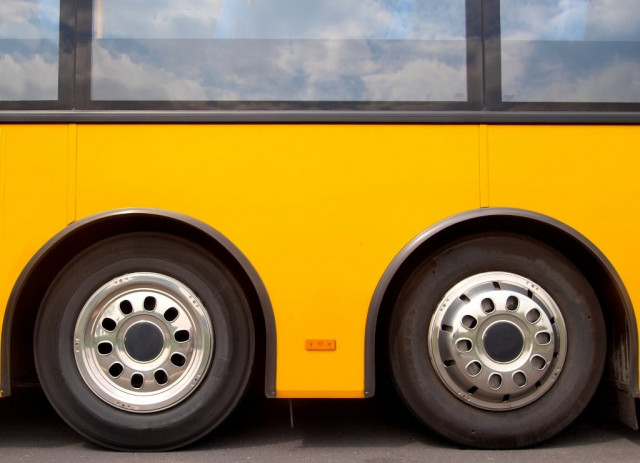Facilitating mass transit: CDA board gets ball rolling on public transport system
Quality Bus Service will cover three busy routes, integrate into wider BRT project when it starts.

Quality Bus Service will cover three busy routes, integrate into wider BRT project when it starts. PHOTO: FILE
Islamabad’s longstanding demand for a decent public transport system may finally have fallen to functioning ears, as the Capital Development Authority (CDA) board on Wednesday approved in principle a new Quality Bus Service (QBS) project.
The board decided to seek expressions of interest in the upcoming days from national and international firms interested in undertaking the project, while the finance wing has also been asked to initiate work on financial modelling of the project. Although the project has yet to be finalised, the QBS, under the initial plan, will be financed under a public-private partnership between the successful contractors and the CDA.
“The financial model will involve less investment from the public sector and more from the private sector,” said an official privy to the development.
The QBS network will comprise of three routes with lane markings for a fleet of 33 buses at locations prone to congestion.
These 33 buses will serve 90 bus stations on a 15-minute frequency for route-I — Rawat to Pak Secretariat via Murree Road — and 10-minute intervals on route-II — Bhara Kahu to PIMS via Aabpara — and route-III — Sector I-10 to Pak Secretariat via Karachi Company and Blue Area.
The buses will operate Monday through Saturday from 6:30am to 10:30pm, while the Sunday and public holiday service will run from 8am to 10pm.
The project will be executed by different contractors, with separate contracts for buses procurement and operations, ticketing, infrastructure development and maintenance, and public feedback and response.
“The QBS is the forerunner to the development of a modern Bus Rapid Transit (BRT) system for the capital, and in time it will integrate seamlessly into the wider BRT network,” said the official when asked about the fate of shelved BRT project being planned by the authority using a soft loan from the Asian Development Bank.
Asian Development Bank social survey
A recent survey conducted by the Asian Development Bank for a bus rapid transit project shelved and replaced with the Quality Bus Service suggests that there are about 700,000 daily trips originating and terminating within the city, and a further 500,000 daily trips to or from the city to adjoining areas of Islamabad including Rawalpindi.
The public transport available is dominated by the private sector, contributing to about 35 per-cent of the share of overall modes of transportation. This share is now declining due to poor service and widespread customer dissatisfaction with the available options.
The survey findings revealed that over 90 per cent of the people travelling via public transport are dissatisfied with the existing transport services in Islamabad. Over 75 per cent of journeys are made by members low income households, underlining the need for an affordable alternative.
Islamabad has a population of approximately 1.8 million, with a population growth rate of four per cent per annum. Since its establishment in 1960, the city managers have failed to develop a decent transport service.
Proposed Subsidy
Although plans are yet to be finalised, the CDA estimates that around Rs347 million per annum will be the expenditure incurred on maintenance and operation of the planned bus service. The authority will be collecting around Rs150 million per annum in fares from passengers, while the CDA will offer a subsidy of approximately Rs197 million per annum against the project.
The maximum fare on a single route will be Rs30. “Per annum collection of fare has been calculated on the lower side, using 40 per cent of total seating capacity of a bus,” the official informed.
Published in The Express Tribune, January 2nd, 2014.



















COMMENTS
Comments are moderated and generally will be posted if they are on-topic and not abusive.
For more information, please see our Comments FAQ